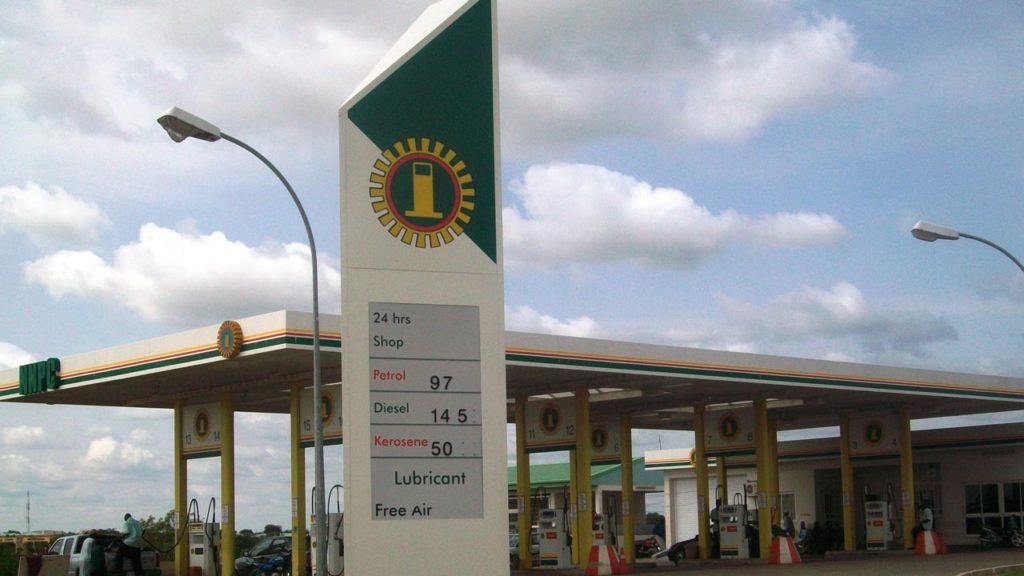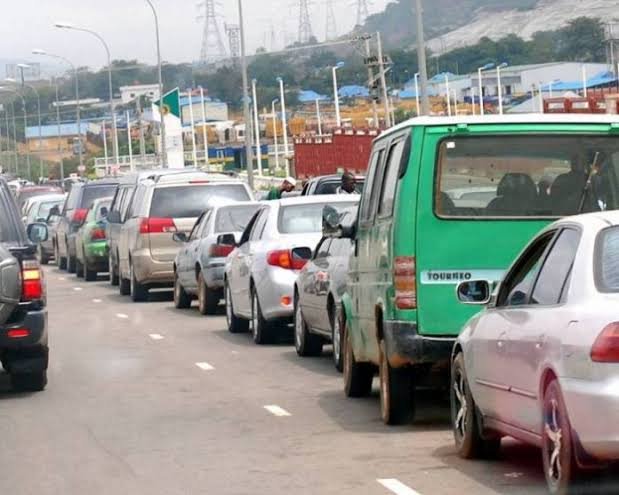Nigerians are no strangers to fuel scarcity. In what appears as a phenomenon to most motorists and travelers, who have coped with the recurring scarcity of Premium Motor Spirit (PMS) or Petrol during Yuletide, the recent strategies of the Nigerian National Petroleum Corporation (NNPC) against the menace may have proven that the yearly scarcity is surmountable.
The current development, thanks to the Group Managing Director (GMD) of NNPC, Mele Kyari, however remained too expensive, unsustainable and abnormal due to the prevailing situation surrounding the feat.
The Guardian learnt that the GMD had brought all the stakeholders in the petroleum supply chain to a meeting, which held at the Presidential Chief of Staff’s office with a follow-up meeting next day in Kyari’s office.
The meetings, which held about two weeks ago, The Guardian learnt, was specifically ran by Kyari and had in attendance all the petrol marketers, especially Major Oil Marketers Association of Nigeria (MOMAN), Depot and Petroleum Products Marketers Association (DAPPMA) as well as Independent Petroleum Marketers Association of Nigeria (IPMAN).
Others are National Union of Petroleum & Natural Gas Workers (NUPENG), Petroleum Tanker Drivers (PTD) and Nigerian Association Of Road Transport Owners (NARTO).
Some other agencies involved in the strategies are Ministry of Work and Housing, Department of Petroleum Resource (DPR), Petroleum Product Pricing Regulatory Agency (PPPRA), Federal Road Safety Corps (FRSC) and other security outlets.
At the event, telephone contacts were taken and a WhatsApp group, headed by Chief Operating Officer, Downstream of the NNPC, Yemi Adetunji, was developed while clear roles were assigned and on spot 24 hours daily attention was provided to solve every problem that may hinder supply of the product to Nigerians.
Indeed, just like assuming roles of other agencies, The Guardian learnt that NNPC went as far as paying for fixing roads if it could disrupt supply of petrol, and also settled security bills.
Nigerians Share Their Opinions
“Every truck that is missing and everything that is happening was reported on the platform and, if it concerns you, you react immediately and solve the problems. Every complaint on the platform is attended to by the most senior authority immediately.
“There is a lot of efforts that goes into this. This is not normal. You can celebrate it because it has happened and because there is seamless supply. But it is not normal,” a top source, who spoke with The Guardian on condition of anonymity said.
Some stakeholders, however, faulted the approach by the state oil company, wondering why a normal fuel supply would become such a difficult task and concluding that the approach is not sustainable because it came at very high financial cost, required a 24-hour manpower and took people out of their ways when, under normal circumstance, fuel supply should sort itself out.
The source added: “It is normal for roads to be good. Isn’t it? Do you need the GMD to bring out money and tell someone go and fix the road? Is that his job? So everywhere there is a bad road that affects fuel supply distribution, he fixed it when there is a ministry in charge. The GMD fixed all key roads that may affect fuel supply all over the country. You think that is normal?”
Apart from the fact that NNPC had to finance interventions to enable free flow of fuel supply, data from the Petroleum Products Pricing Regulatory Agency (PPPRA) had on Monday revealed that subsidy on Premium Motor Spirit, popularly known as petrol, rose to N47.5 per litre as the expected open market price of the commodity hit N180.78.

On December 16, PPPRA had said petrol under recovery was N21.22 kobo per litre considering that gasoline price at the international market averaged $582.80 per metric tonne. Landing Cost and Expected Open Market Price (EOMP) averaged ₦146.85/litre and ₦166.22/litre respectively for NNPC imports only.
Amid border closure to checkmate smuggling of petrol, government had in the 2019 budget voted about N305 billion but the figure for next year increased by a whopping N145 billion.
PricewaterhouseCoopers’s Associate Director, Energy, Utilities and Resources, Habeeb Jaiyeola, said the efforts demand commendations from the Federal Government but insisted that the sustainability of the efforts remain critical.
Jaiyeola also canvassed for a situation where the forces of demand and supply as well as fair play are allowed while the industry is able to yield profits and sustain itself.
Lead, Extractives and Open Data, Policy Alert, Iniobong Usen said until Nigerians fully deregulate the petroleum sector, and pass the PIGB, the country would be moving around in circles and there would be very little or nothing to celebrate.
Usen said: “To ordinary Nigerians, it might seem like something to celebrate, but looking at it at the macro-level, you will have to juxtapose it with the cost of subsidising the pump price to keep it at the level of N145 to be able to make an informed conclusion.
“The more we spend on subsidy, the less we have to spend on critical infrastructure and quality service delivery generally.”
Managing Partner, The Chancery Associates, Emeka Okwuosa, noted that the prevailing development is a step in the right direction.
“I attribute this to the good planning by the Federal Government to beef up our fuel reserves and also the border closure must have helped. Smuggling to neighbouring countries drastically reduced. We are now consuming the right quantity of fuel as a country adding to our reserves,” he said.
Vice President, Independent Petroleum Marketers Association of Nigeria, Abubakar Maigani Shettima noted that the supply of the product has been seamless, stressing that the current administration deserves commendation.
As at the time of filing this report, spokesman for DAPMAN, Olufemi Adewole was unavailable to offer comments on the development.

